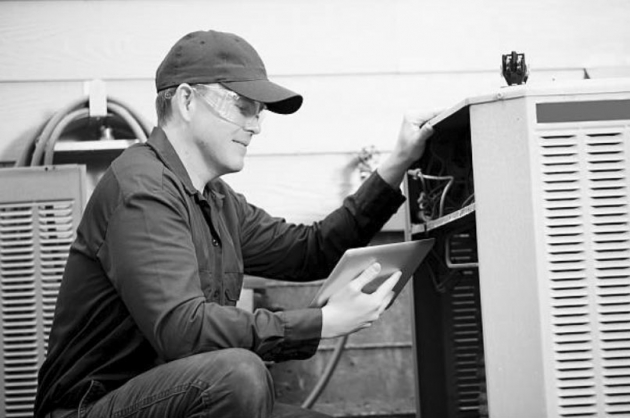Keeping your home cool is the best way to keep your own cool on a hot summer day and air conditioners, and other types of cooling systems make this level of comfort possible. Unfortunately, many homeowners find themselves feeling unfamiliar with these systems, but we have some expert advice for your air conditioning questions.
How Does AC Work?
One of the most common questions asked about air conditioning is how AC actually works. Most air conditioners use refrigerant to absorb and discharge heat. Warm air is pulled across the evaporator coils allowing the refrigerant inside the coils to absorb the heat. The refrigerant converts from a liquid into a vapor, which passes to the compressor in the outdoor AC unit. The vapor is condensed back into a liquid form, releasing the heat that dissipates outside. The now liquid refrigerant cycles back inside to continue the cooling process.
Are There Different Types of Air Conditioner?
When you think of an air conditioner, you may think of a system with an outdoor condenser and indoor air handler, but there are actually a variety of different types of system. Heat pumps can provide heating and cooling but operate in a different way to central systems. Ductless mini splits use individual air handlers in different areas of your home for zoned cooling.
There is also the option of window or portable air conditioners, but these do not provide a whole home solution.
What Are the Common Repair Issues?
Air conditioning systems comprise many components, and while maintenance can prevent problems, you may still experience some common repair issues. Refrigerant leaks can occur when the coolant lines become damaged. This decreases pressure in the system and compromises cooling. The leak will need to be found and repaired before the coolant is recharged.
Another common repair issue is frozen condenser coils. When the coils freeze up, it prevents the system from cooling properly. It is usually caused by poor airflow or low refrigerant. You’ll need a technician to diagnose the underlying issue before the coils are deiced, and the system function can be restored.
You may also experience drainage problems when the condensate drain line is blocked allowing moisture to back up into the system. This can create humidity problems in your home and cause damage to your AC equipment. An HVAC technician will need to clear the obstruction and check that moisture is properly leaving your system.
How is AC Efficiency Measured?
The efficiency of an air conditioner is measured by a Seasonal Energy Efficiency Ratio or SEER. The SEER rating is calculated when the cooling output from an average season is divided by the electrical energy used. The greater the SEER rating, the greater the efficiency of the unit. By law, the minimum SEER rating for new air conditioners is 13 or 14, depending on your state, but there are systems on the market that have a rating of 22.
If you are still unsure about air conditioning equipment and the best option for your home, you should speak to a professional HVAC contractor. An experienced technician can assess the specific requirements of your home and guide you through the options best suited to your needs.

